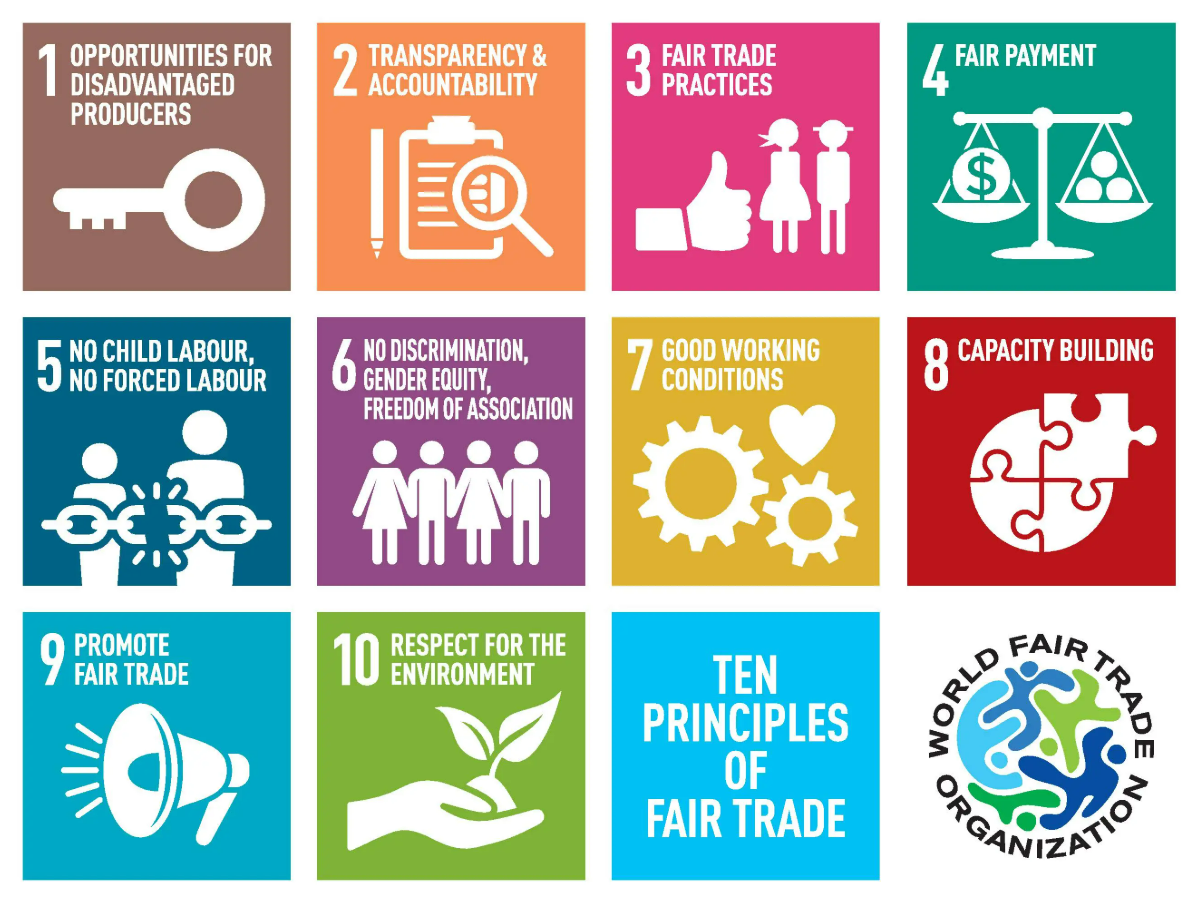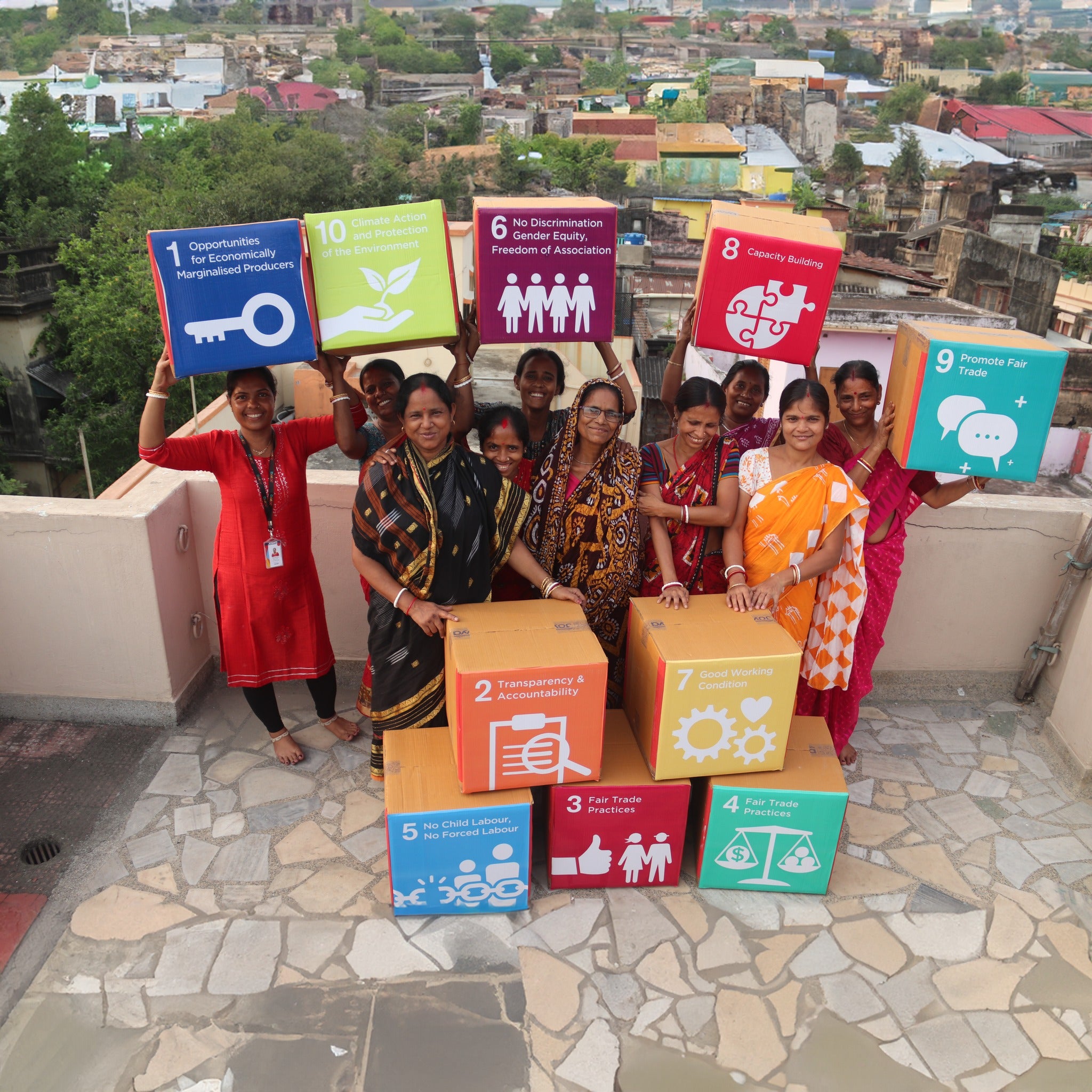
Fair Trade goes beyond social enterprise or “ethical production.” It’s a holistic way of doing business that systematises care for people and the planet across every stage of production. With measurable principles and thorough certifications, Fair Trade ensures each step is accountable and transparent.
We’re proud to be Fair Trade.
From Fairtrade cotton that supports farmers with the Fairtrade Premium, to transparency and social auditing in spinning mills, our supply chain is built for integrity. Our sewing partners are WFTO Guaranteed members who follow the 10 Principles of Fair Trade, creating sustainable livelihoods, especially for disadvantaged women. Fair Trade isn’t just an ethical choice; it’s a whole-of-business approach that empowers people and protects the planet.
What’s the difference between Fairtrade and Fair Trade?
You may have noticed both Fairtrade (one word) and Fair Trade (two words) used on this site and both are important, but slightly different.
- Fairtrade (one word) refers specifically to the certification system managed by organisations like Fairtrade International (FLO) and Fairtrade Australia & New Zealand. It applies mostly to commodities such as cotton, coffee, cocoa, and sugar, and is identified by the familiar green-and-blue Fairtrade Mark on products.
- Fair Trade (two words) is the broader global movement for ethical trade, guided by the 10 Principles of Fair Trade, and supported by networks like the World Fair Trade Organization (WFTO). It includes artisans, textile producers, and small enterprises, not just farmers, and often focuses on handcrafted and garment-based industries.
At Change Threads, we work with both kinds of systems depending on the product, and we’re proud to align with multiple certifications to ensure full transparency and trust.
Certifications We Trust
Fairtrade (FLO Certified) fairtradeanz.org
Fairtrade certification ensures decent working conditions, no child or forced labour, fair prices for farmers, and an additional Fairtrade Premium that communities choose how to spend, often on education, healthcare, or environmental initiatives.
WFTO (World Fair Trade Organization) wfto.com
WFTO certifies entire organisations (not just products) based on their commitment to the 10 Principles of Fair Trade, including transparency, gender equity, fair pay, environmental stewardship, and respect for artisans. Many of our partners are WFTO members offering complete, mission-driven supply chains.
GOTS (Global Organic Textile Standard) global-standard.org
GOTS is the leading certification for organic textiles, ensuring not just organic farming but also socially responsible and environmentally sound processing, dyeing, and manufacturing. From seed to finished fabric, it guarantees a clean, ethical process.
GRS (Global Recycled Standard) global recycling standard
The Global Recycled Standard certifies products made with recycled materials, such as polyester from plastic bottles or reclaimed fibres, while also checking for responsible chemical use and social compliance in production.https://fairtradeanz.org/
Why It Matters
Every label tells a story and we believe you deserve to know that story.
From cotton farms to sewing rooms, the certifications we work with ensure that no one is exploited, the environment is respected, and communities are empowered. No system is perfect, but these standards give us, and you, the confidence to say: this garment was made with dignity.

